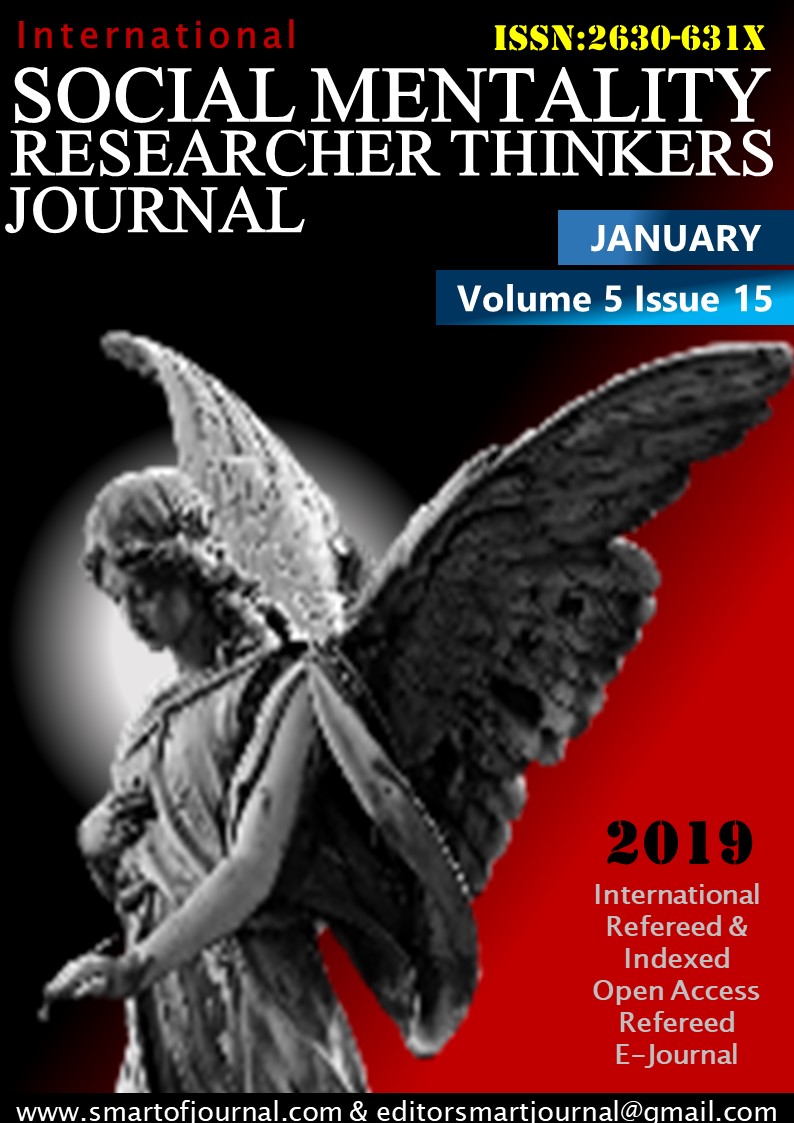Üniversite Öğrencilerinde Zihinsel Dayanıklılık İle Üstbilişsel Farkındalık Arasındaki İlişkinin Algılanan Sosyal Destek Ve Yaşam Doyumu Üzerine Etkisi
Author :
Abstract
Algılanan sosyal destek, bireyin çevresinden elde ettiği sosyal ve psikolojik desteği kendisinin ne kadar algıladığıdır. Zihinsel dayanıklılık, mükemmel performansa ulaşmayı ve bunu sürdürebilmeyi sağlayan psikolojik güçtür. Yaşam doyumu ise insanın yaşamla ilgili inanç ve değerlendirmelerinin toplamı veya insanın hayatıyla ilgili genel tutumu olarak tanımlanabilir. Diğer taraftan zihinsel dayanıklılık ise kuramsal kapsamı itibariyle üstbilişsel süreçler ile yakından bağlantılı gibi görünmektedir. Bu çalışmada üniversite öğrencilerinde zihinsel dayanıklılık ile üstbilişsel farkındalık arasındaki ilişkinin algılanan sosyal destek ve yaşam doyumu üzerine etkisi araştırılmıştır. Araştırmanın örneklemini 18-24 yaş aralığında 93 üniversite öğrencisi oluşturmaktadır. Veri toplama aracı Algılanan Sosyal Destek Ölçeği, Yaşam Doyumu Ölçeği, Zihinsel Dayanıklılık Ölçeği ile Üstbilişsel Farkındalık Envanteri kullanılmıştır. Sonuçlar SPSS 23.0 sürümü kullanılara değerlendirilmiştir.
Keywords
Abstract
Perceived social support is how much the individual perceives the social and psychological support he / she receives from the environment. Mental resilience is the psychological force that enables to achieve and sustain excellent performance. Life satisfaction can be defined as the total of people's beliefs and evaluations about life or the general attitude of people about life. On the other hand, mental resilience seems to be closely related to metacognitive processes in terms of theoretical content. In this study, the effect of the relationship between mental resilience and metacognitive awareness on perceived social support and life satisfaction was investigated in university students. The sample of the study consisted of 93 university students aged between 18-24. Data collection tool, Perceived Social Support Scale, Life Satisfaction Scale, Mental Resilience Scale and Metacognitive Awareness Inventory were used. The results were evaluated using SPSS version 23.0.
Keywords
- Bull, S. J., Albinson, J. G. & Shambrook, C. J. (1996). “The mental game plan: Getting psyched for
- Bull, S. J., Albinson, J. G. & Shambrook, C. J. (1996). “The mental game plan: Getting psyched for sport”, Sports Dynamics, Eastbourne, UK.
- Bull, S. J., Shambrook, C. J., James, W. & Brooks, J. E. (2005). “Towards and understanding ofmental toughness in elite English cricketers”. Journal of Applied Sport Psychology, 17:209-227.
- Clough, P. J., Earle, K. & Sewell, D. (2002). “Mental toughenss: The concept and its measurement”. (Ed. Ian M. Cockerill), Solution in Sport Psychology, ss.32-43, Thomson Publishing, Londra.
- Çakıroğlu, A. (2007). “Üstbiliş”. Türkiye Sosyal Araştırmalar Dergisi, 11(2):21–27.
- Demetriou, A.,& Efklides, A. (1990). “The objective and subjective structure of metacognitiveabilities from early adolescence to middle age”. Learning and instruction: European research in an international context, ss. 161-180, Pergamon, Oxford.
- Desoete, A. & Ozsoy, G. (2009). “Metacognition, more than the lognes monster?” International Electronic Journal of Elementary Education, 2(1):1–6.
- Desoete, A., & Roeyers, H. (2002). “Off-line Metacognition – A Domain-specific retardation in young children with learning disabilities”. Learning Disability Quarterly, 25:123–139.
- Dağlı, A. & Baysal, N. (2016). “Yaşam doyumu ölçeğinin Türkçeye uyarlanması”. Elektronik Sosyal Bilimler Dergisi, 15(59:1250-1263.
- Eker, D. & Arkar, H. (1995). “Çok boyutlu algılanan sosyal destek ölçeğinin faktör yapısı, geçerlik ve güvenirliği”. Klinik Psikoloji Dergisi, 10(34): 45-55.
- Erdoğan, N. (2016). “Zihinsel dayanıklılık ölçeği: Türkçeye uyarlama, geçerlik ve güvenirlik çalışması”. International Journal of Science Culture and Sport, 4(2):652-664.
- Flavell, J. H. (1976). “Metacognitive aspects of problem solving”, (Ed.Leonard Resnick), The Nature of Intelligence, ss.231-235, Erlbaum Associates Hillsdale, NJ: Lawrence.
- Flavell, J. H. (1979). “Metacognition and cognitive monitoring: A new area of cognitive developmental inquiry”. American Psychologist, 34(10): 906–911.
- Justice, E. M., & Dornan, T. M. (2001). “Metacognitive Differences between Traditional-Age and Nontraditional-Age College Students”. Adult Education Quarterly, 51(3): 236–249.
- Gülcan, A. & Bal, N. P. (2014). “Genç yetişkinlerde iyimserliğin mutluluk ve yaşam doyumu üzerindeki etkisinin incelenmesi”. Asya Öğretim Dergisi, 2(1): 41-52.
- Gündoğar, D., Gül. S. S., Uskun, E., Demirci, S. & Keçeci, D. (2007). “Üniversite öğrencilerinde yaşam doyumunu yordayan etkenlerin incelenmesi”. Klinik Psikiyatri Dergisi, 10: 14-27.
- Gibson, A. (1998). Mental Toughness. New York: Vantage Press.
- Loehr, J. E. (1982). Athletic excellence: Mental toughness training for sport. New York: Plume. Loehr, J. E. (1995). The new toughness training for sports. New York: Plume.
- Özsoy, G. (2008). “Üstbiliş”. Turk Eğitim Bilimleri Dergisi, 6(4):713–740.
- Sica, C., Steketee, G., Ghisi, M., Chiri, L. R., & Franceschini, S. (2007). “Metacognitive beliefs andstrategies predict worry, obsessive–compulsive symptoms and coping styles: A preliminaryprospective study on an Italian non-clinical sample”. Clinical Psychology & Psychotherapy, 14(4): 258–268.
- Schraw, G., & Sperling-Dennison, R. (1994). “Assessing metacognitive awareness”. Contemporary Educational Psychology, 19: 460-470.
- Schraw, G. (1998). “Promoting general metacognitive awareness”. Instructional Science, 26:113- 125.
- Stenberg, R. J. (1998). “Metacognition, abilities, and developing expertise: What makes an expert student”. Instructional Science. 26:127–140.
- Yıldırım, İ. (1997). “Algılanan sosyal destek ölçeğinin geliştirilmesi, güvenirliği ve geçerliği”. Hacettepe Üniversitesi Eğitim Fakültesi Dergisi, 13:81-87.
- Yılmaz, E., Yılmaz, E. & Karaca, F. (2008). “Üniversite öğrencilerinin sosyal destek ve yalnızlık düzeylerinin incelenmesi”. Genel Tıp Dergisi, 18(2):71-79.
